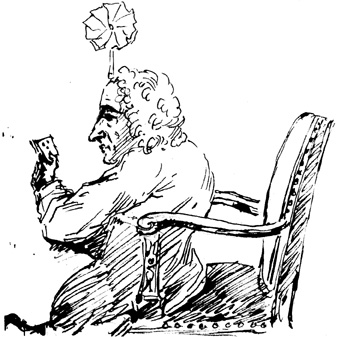Before I get to the real business of reviewing, I have two confessions to make.
The first, that although I had heard of Peri Bathous; I had always assumed it to be a serious description on the art of poetry and not as a snarky look at the art of writing bad poetry. More than that, I hadn’t known that the ‘author’ of Peri Bathous is none other than our old friend, Martin Scriblerus.
The second confession is that when I found out that this was a treatise, I started reading it to get tips on writing my own bad eighteenth century poetry for the main character in my next novel, Sidney Derrick. This is a confession as it breaks on of my all time reading rules, ‘never read a book for a purpose’.
Pope.
However, I did read this for a purpose and was lucky enough to greatly enjoy it. The notes in my copy point the majority of this small book to have been written by Alexander Pope, with little or no input from the other members of the Scriblerians.
In this book, Martinus Scriblerus is assessing the taste for the profound, that a taste for profundity is more common than a taste of reality and that there are many mediocre writers, who can create really deep profundity with a little instruction. Martinus then gives us examples from real poems, where this art of creating the deep and profound writing has been perfected; gives the forms and styles that create this effect, a recipe for a epic poetry and a scheme for the improvement of the stage.
I particularly liked the link between profundity and depth to the concept of making things ‘low’. The main aim of the book is to encourage writers to sink to the very ‘bathos’, the depth of all. I have often thought that writers who write to be clever or deep regularly find themselves writing rubbish, and it was pleasing to see someone else saying it.
The tone of the piece is perfect, where the Memoirs occasionally got too silly, this book never slips the guise of an earnest and helpful style manual. The inclusion of many absurd and comical examples of real poetry, helped give the ideas weight.
I very much enjoyed this book, and wanted to quotes parts to people throughout reading.
For example, there is the advice to those who wish to get the right register in a piece, that they don’t want to be too clear in their writing as that would be too vulgar. A writer must be obscure as
‘Obscurity bestows a cast of the wonderful’.
There is also the description on poetry as a ‘natural or morbid secretion from the brain.’ It is like snot or mucus, something better out than in, a view I have had about poetry for some time. Poetry certainly acts this way for poor Sidney Derrick, who can’t help secreting poetry, even when he is under awful strain.
The final piece of advice, which confirms my original conception of Sidney, is Martinus’s dictum that a poet must ‘acquire a most happy, unaccountable way of thinking.’ I like this description, Sidney will definitely be a character with a happy and unaccountable way of thinking, he’ll have a positively deluded way of thinking, seeing everything through a rosy glow. He won’t be able to see anything the way it really appears.
My absolute favourite part of the book was where overblown and poetical examples of normal commands were given - for example...
Shut the Door.
“The wooden guardian of our privacy. Quick, on it’s axle turn -”
Uncork the Bottle.
“Apply thine engine to the spongy door. Set Bacchus from this glassy prison free.”
And my favourite;
“Bring forth some remnant of Promethean theft, Quick to expand th’ inclement air Congealed by Boreas’s rude breath.”
Which means, to light a fire.
So...
Like lovers parting, or one stool-bound with a poo.





